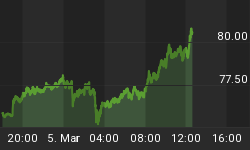Whether or not you participate in the financial markets, if you have not done so you ought to read IMF: Euro-zone companies face massive 'debt overhang'. The article, published yesterday, reports that the International Monetary Fund (IMF) has:
-
said 'Euro-zone companies face a massive "debt overhang" that could prolong the region's downturn and risk a return to a more acute crisis'; and,
-
estimated that up to 20% of corporate bonds and loans issued by major European corporations (which goes beyond only eurozone corporations) are "unsustainable", and this will force companies to take steps to conserve cash to make debt payments. 'Steps' mentioned included cutting capital expenditures - which of course speaks directly to corporate (and hence GDP) growth or, more particularly, lack thereof.
Perhaps more importantly, I suggest you link to the IMF Report titled Global Financial Stability Report 'Old Risks, New Challenges' and take 10 minutes to read the 4 page Executive Summary (pages 11 -14 of the PDF found there). The IMF Report is said to be an assessment of "key risks facing the global financial system". Over and above what is reported in IMF: Euro-zone companies face massive 'debt overhang' the IMF Global Financial Stability Report 'Old Risks, New Challenges' includes (among other things):
-
a view that if financial sector balance sheets do not continue to improve and there is not a "smooth unwinding of public and private debt overhangs" the "global financial crisis could morph into a more chronic phase, marked by a deterioration of financial conditions and recurring bouts of financial instability";
-
a statement that "the use of unconventional monetary policies in advanced economies continues to provide essential support to aggregate (economic) demand. These policies are generating a substantial rebalancing of private investor portfolios toward riskier assets, as intended" (italics added);
-
a view that prolonged 'unconventional monetary policies' need to be closely monitored with respect to "misplacing of credit risk (and) riskier positioning by weaker pension funds and insurance companies, and a risk in liquidity risk, particularly in countries where recoveries are more advanced". Note: I presume the latter includes the United States where economic recovery may not be quite as advanced as one might like to think; and,
-
a view that many negative perceptions of Sovereign Credit Default Swaps (SCDS) are unfounded, while at the same time "the question of whether SCDS markets are more likely to be contagious than other markets is difficult to answer because sovereigns and financial institutions are now more interconnected, and hence the risks embedded in SCDS cannot be readily isolated from the risk of the financial system". Note that the IMF Report says 'many negative perceptions' and doesn't say 'all negative perceptions'.
On reading the IMF Report Executive Summary, I do not come away with good 'warm and fuzzy feelings'. That said, I suggest you read both the referenced Washington Post article and the IMF Report Executive Summary and reach you own conclusions.
Topical Reference: IMF: Euro-zone companies face massive 'debt overhang', from The Washington Post, Howard Schneider, April 17, 2013 - reading time 3 minutes. Also see Global Financial Stability Report 'Old Risks, New Challenges', from the International Monetary Fund, April 2013 - reading time as long as you like, but the Executive Summary only 10 minutes.
















